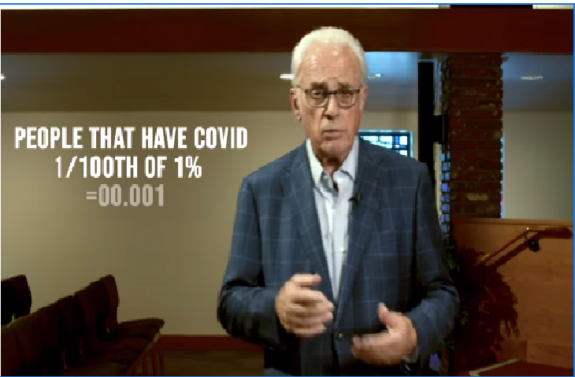Today, the WASC Senior College and University Commission posted a letter dated March 4 which describes their decision to keep The Master’s University and Seminary on probation. The letter also informs the school that the search for a new president to replace John MacArthur should be completed by the end of 2019 (see also this post). According to the letter, TMUS’s board of directors had decided to extend that date until later. The WASC team determined that was not in keeping with the plan previously established.
The Commission saw the lack of movement of finding MacArthur’s replacement as a sign of concern regarding organizational integrity. The Commission stated:
In addition, the institution made a commitment to transition its chief executive officer from the position of president to Chancellor of the Seminary within 18 months of the date of the visit. Yet, at the panel interview, the president mentioned that the Board has extended that date and had still not taken steps to define the requirements and job description for the institution’s next president. The Commission is concerned that TMUS still struggles in the area of operational integrity and transparency.
For this and other reasons, the Commission decided TMUS was out of compliance with the accreditation standards.
The Commission found that The Master’s University and Seminary is not in compliance with WSCUC Standards 1 and 3 and acted to continue the sanction of Probation.
Being on probation can lead to dire consequences for an institution of higher learning.
Under U.S. Department of Education regulations, when the Commission finds that an institution fails to meet one or more of the Standards of Accreditation, it is required to notify the institution of these findings and give the institution no longer than two years from the date of this action to correct the deficiencies. If an institution has not remedied the deficiencies at the conclusion of this sanction period, the Commission is required, under U.S. Department of Education regulations, to take an “adverse action,” which in this case would take the form of withdrawal of accreditation.
TMUS is required to respond to the following concerns:
1. The Board should ensure the successful succession and transition of the Presidential role including conducting a national search by 12/31/2019. (CFRs 3.8, 3.9)
2. The Board and Administration should continue to communicate with their constituents in the TMUS community regarding personnel actions and leadership succession. (CFRs 1.7, 3.2, 3.6)
3. TMUS should establish systematic two-way communication practices to promote consistent and sustainable flow of information among administrators, faculty, staff and students. (CFRs 1.6, 3.7, 3.10)
4. TMUS should establish and implement a formal procedure that allows for a safe environment for staff and faculty to express grievances and ethical concerns. (CFRs 1.7, 3.2)
The Commission’s Standards 1 and 3 are as follows (read all of them here):
Standard 1: Defining Institutional Purposes and Ensuring Educational Objectives
The institution defines its purposes and establishes educational objectives aligned with those purposes. The institution has a clear and explicit sense of its essential values and character, its distinctive elements, its place in both the higher education community and society, and its contribution to the public good. It functions with integrity, transparency, and autonomy.
Standard 3: Developing and Applying Resources and Organizational Structures to Ensure Quality and Sustainability
The institution sustains its operations and supports the achievement of its educational objectives through investments in human, physical, fiscal, technological, and information resources and through an appropriate and effective set of organizational and decision-making structures. These key resources and organizational structures promote the achievement of institutional purposes and educational objectives and create a high-quality environment for learning.
Each of these standards has criteria for review (CFR) which are identified in the letter. When CFR is referred to above in the letter, those are the criteria which are of concern to the Commission.

